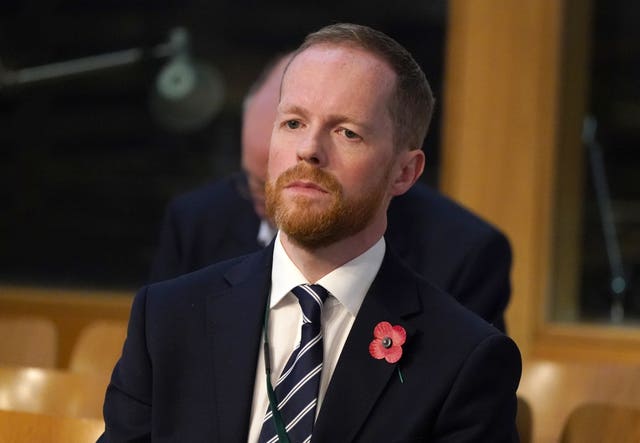
Ian Payne 4am - 7am
22 August 2024, 00:04

A report from the Auditor General for Scotland and the Accounts Commission called for action to ensure Scots can access the internet.
Around 15% of Scottish adults do not have the skills to access the internet, a report on digital exclusion has found.
An estimated one in six adults lack the digital skills needed for everyday life, according to the report from the Auditor General for Scotland and the Accounts Commission.
It calls for public bodies to improve technology to deliver services, amid warnings from Scottish Labour that the current situation is failing marginalised communities.
The Scottish Government said it has allocated £10 million for 2025-26 to help “our most disadvantaged families” with devices, internet access and the skills to use them, as it insisted it is “striving to make Scotland a fully digitally inclusive nation”.
The report warned: “Some people are being left behind as more services move online and reliance on digital technology increases, causing unintended harms and further widening inequalities.”
It said it is estimated 15% of adults lack the digital skills to turn on a digital device, connect to the internet, or update a password.
Another 14% are unable to afford sufficient, private and secure access to the internet, while 9% of households do not have access to the internet, according to the latest Scottish Household Survey.

Households with an income of £40,000 a year predominantly have access to the internet, with only 1% unable to get online, the report said.
However, households on a £10,000 a year income, for example the state pension, only 69% have internet access.
The report said: “All public bodies have a responsibility – they need to do more to support people to use digital tools in a way that benefits them and make sure they can access the services they need.
“Failing to do so intensifies the impacts felt by already vulnerable people – due to poverty, age or because they have a disability.”
The report added: “To help mitigate the harms caused by inequalities, by the end of 2024/25 the Scottish Government and Cosla need to develop a clear action plan, with clarity on leadership, roles and responsibilities. This must also include detail about the funding needed and available.
“This is vital – it’s currently unclear across local and Scottish Government, and the third sector, who is responsible for delivering Scotland’s national digital strategy.”
Stephen Boyle, Auditor General for Scotland, said: “Digital technology is at the heart of public service reform. Increasing efficiency is vital to ensure services can be delivered cost-efficiently, at a time of ever-intensifying budget and service pressures.

“To achieve this, the Scottish Government must have clear actions to tackle and mitigate the impacts of digital exclusion. Failing to do so risks marginalising the most vulnerable people in our communities.”
Scottish Labour social justice spokesman Paul O’Kane said “This report sets out the high cost of failing to tackle digital exclusion – but the SNP Government is set to raid digital exclusion funds for the second year in a row.
“It is the most marginalised communities in Scotland that will pay the price for the SNP’s broken promises on this important issue.
“The SNP must listen to this stark warning and set out a real plan to break down the barriers that risk locking vulnerable people out of vital public services.”
A Scottish Government spokesperson said: “We welcome the report and will consider its findings and recommendations.
“Tackling digital exclusion remains a priority and we have allocated £10 million for 2025-26 to help our most disadvantaged families with devices, internet access and skills.
“Our Digital Inclusion Alliance is undertaking in-depth analysis to identify and address any gaps in support from public, private and third sectors.
“The Scottish Government also supports connectivity projects, including a £28.75 million initiative which delivered 4G infrastructure and services in 55 mobile phone signal blackspots.”
Citizens Advice Scotland (CAS) recently published data showing the level of digital exclusion among clients had increased by 59% in two years.
CAS spokesman Kyle Scott said: “The consequences of being digitally excluded vary. For one thing, it makes you unable to apply for jobs or benefits, and unable to access consumer services like price comparison or anti-scam websites.
“It also excludes you from staying connected and in touch with loved ones, so it can have a big impact on people’s mental health and loneliness. Those affected include older or disabled people and those on low incomes, many of whom face complex and vulnerable circumstances.”
Cosla has been contacted for comment.